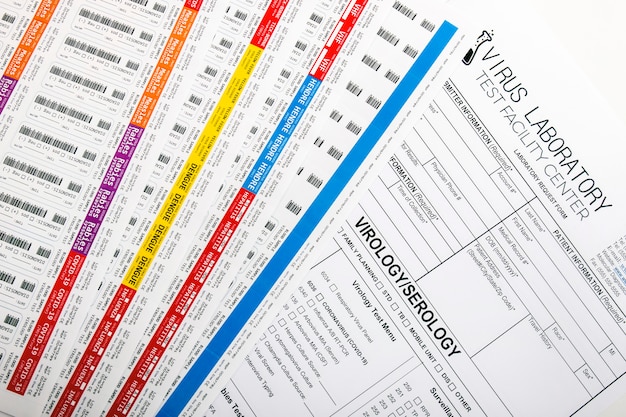New Federal Guidelines for Public Event Permits in 2025: What You Need to Know

The new federal guidelines for public event permits in 2025 aim to streamline the permitting process, enhance safety and security measures, and ensure accessibility for all participants, reflecting evolving priorities in public event management.
Planning a public event in the US? Understanding the new federal guidelines for public event permits in 2025 is crucial. These guidelines impact everything from safety regulations to accessibility standards, so staying informed is essential for a smooth and successful event. Let’s dive into what you need to know about the new federal guidelines for public event permits in 2025.
Understanding the Scope of Public Event Permits
Public event permits are essential for organizing gatherings that occur on federal lands or involve federal resources. These permits ensure that events comply with safety, security, and environmental regulations. The new guidelines for 2025 seek to modernize these processes.
The scope of public event permits covers a wide range of activities, from small community gatherings to large-scale festivals and demonstrations. Understanding this scope is important in determining whether your event requires federal permits.

Types of Events Requiring Permits
Several types of events typically require public event permits. These include:
- Festivals and Concerts: Any large gathering involving music, performances, and vendors.
- Parades and Marches: Organized processions that may impact public roads or federal properties.
- Demonstrations and Protests: Gatherings intended to express opinions or advocate for causes.
- Sporting Events: Races, tournaments, and other athletic competitions held on federal land.
It is essential to identify early on whether your event falls under these categories to kickstart the permitting process.
The new guidelines aim to streamline the permitting process, making it more efficient for both event organizers and federal agencies. This includes clearer definitions of what constitutes a “public event” and standardized application procedures.
Key Changes in the 2025 Guidelines
The 2025 guidelines introduce several significant changes designed to enhance public safety, improve accessibility, and ensure environmental protection. These changes reflect evolving societal needs and priorities.
From increased security measures to enhanced accessibility provisions, the updated guidelines aim to address modern challenges in public event management. Event organizers need to be aware of these changes to ensure compliance.
Enhanced Security Measures
One of the primary focuses of the new guidelines is increased security. This includes:
- Mandatory Security Plans: Detailed plans outlining security protocols, emergency response procedures, and risk mitigation strategies.
- Background Checks: Requirements for background checks for event staff and volunteers in sensitive roles.
- Coordination with Law Enforcement: Increased collaboration with federal, state, and local law enforcement agencies.
These measures are intended to minimize risks and enhance safety for all attendees.
Accessibility Improvements
The 2025 guidelines prioritize accessibility for individuals with disabilities. Key changes include:
- Accessible Routes and Facilities: Ensuring that event venues and routes are accessible to individuals using wheelchairs or other mobility devices.
- Assistive Listening Devices: Providing assistive listening devices for individuals with hearing impairments.
- Sign Language Interpretation: Offering sign language interpretation for key presentations and performances.
These improvements aim to create more inclusive events for everyone.

By updating the guidelines to reflect modern needs, federal authorities aim to create safer, more inclusive, and environmentally responsible public events. Event organizers will need to adapt to these changes to secure the necessary permits.
Navigating the Application Process
The application process for public event permits can be complex, but understanding the steps involved can help streamline the process. The 2025 guidelines aim to provide more clarity and efficiency.
Knowing what to expect during the application process is key to avoiding delays and ensuring that your event can proceed as planned. This includes preparing necessary documents and adhering to deadlines.
Step-by-Step Guide
Here is a step-by-step guide to navigating the application process:
- Initial Consultation: Contact the relevant federal agency to discuss your event and determine permit requirements.
- Application Submission: Complete and submit the permit application form, including all required documentation.
- Review and Evaluation: The agency reviews your application to assess potential impacts on public safety, the environment, and other factors.
- Permit Approval: If your application meets all requirements, the permit is approved, and any conditions are outlined.
- Post-Event Compliance: Ensure compliance with all permit conditions and submit any required post-event reports.
Following each step carefully will help ensure a smooth application process.
The 2025 guidelines also emphasize transparency, providing event organizers with clear and timely updates on the status of their applications. This helps manage expectations and allows for better planning.
Environmental Considerations
Environmental protection is a key aspect of the new federal guidelines. Event organizers are required to minimize their environmental footprint and adhere to sustainable practices.
This includes implementing waste reduction strategies, protecting natural resources, and mitigating any potential environmental impacts. Compliance with these regulations is essential for securing a public event permit.
Sustainable Event Practices
Some sustainable practices that event organizers should consider include:
- Waste Reduction: Implementing recycling programs, using compostable materials, and minimizing single-use plastics.
- Energy Conservation: Using energy-efficient lighting and equipment, promoting public transportation, and offsetting carbon emissions.
- Water Conservation: Reducing water usage, preventing water pollution, and protecting water resources.
By adopting these practices, event organizers can minimize their environmental impact.
The guidelines also encourage event organizers to collaborate with local environmental organizations and stakeholders to develop effective sustainability plans. This collaborative approach can lead to more innovative and impactful environmental initiatives.
Enforcement and Penalties
Compliance with the new federal guidelines is essential, and non-compliance can result in significant penalties. Understanding the enforcement mechanisms and potential consequences is crucial for event organizers.
Federal agencies are responsible for monitoring and enforcing compliance with the regulations. This includes conducting inspections, investigating violations, and imposing penalties for non-compliance.
Types of Penalties
Penalties for non-compliance can include:
- Fines: Monetary penalties for violations of permit conditions or regulations.
- Permit Revocation: Cancellation of the event permit, preventing the event from proceeding.
- Legal Action: Lawsuits or other legal proceedings for serious violations.
These penalties are intended to deter non-compliance and protect public safety and the environment.
Event organizers should familiarize themselves with the specific enforcement provisions in the 2025 guidelines and take proactive steps to ensure compliance. This includes training staff, implementing monitoring systems, and regularly reviewing event operations.
Preparing for Future Changes
As societal needs and priorities evolve, the federal guidelines for public event permits are likely to undergo further changes in the future. Staying informed and adaptable is essential for event organizers.
This includes monitoring regulatory updates, participating in industry discussions, and engaging with federal agencies to understand emerging trends and best practices.
Strategies for Adaptability
Some strategies for preparing for future changes include:
- Continuous Learning: Staying up-to-date on the latest regulations, technologies, and best practices.
- Flexibility: Developing flexible event plans that can be adapted to changing requirements.
- Collaboration: Working with industry partners and stakeholders to share knowledge and resources.
By being proactive and adaptable, event organizers can navigate future changes successfully.
The new federal guidelines for public event permits in 2025 represent a significant step forward in enhancing safety, accessibility, and environmental protection. By understanding these changes and taking proactive steps to comply, event organizers can ensure the success and sustainability of their events.
| Key Point | Brief Description |
|---|---|
| 🔑 Security Plans | Mandatory detailed security protocols. |
| ♿ Accessibility | Improved access for individuals with disabilities. |
| 🌱 Sustainability | Focus on reducing environmental impact. |
| 📝 Application Process | Streamlined steps for permit approval. |
Frequently Asked Questions
▼
Events held on federal lands or using federal resources, such as festivals, parades, demonstrations, and sporting events, typically require a federal permit.
▼
Key security measures include mandatory security plans, background checks for staff, and increased coordination with law enforcement agencies for public safety.
▼
The guidelines ensure accessibility through accessible routes, assistive listening devices, and sign language interpretation, enhancing the inclusive experience.
▼
Event organizers prioritize waste reduction, energy & water conservation, including recycling, compostable materials, efficient lighting, and pollution prevention for permit compliance.
▼
Non-compliance penalties include fines, permit revocation, or legal action, serving as deterrents to ensure public safety, environmental protection, and regulatory adherence.
Conclusion
The new federal guidelines for public event permits in 2025 aim to ensure safety, accessibility, and environmental responsibility. Event organizers must understand and adhere to these guidelines to secure permits and execute successful, compliant events. Staying informed and adaptable will be key for navigating future changes.





